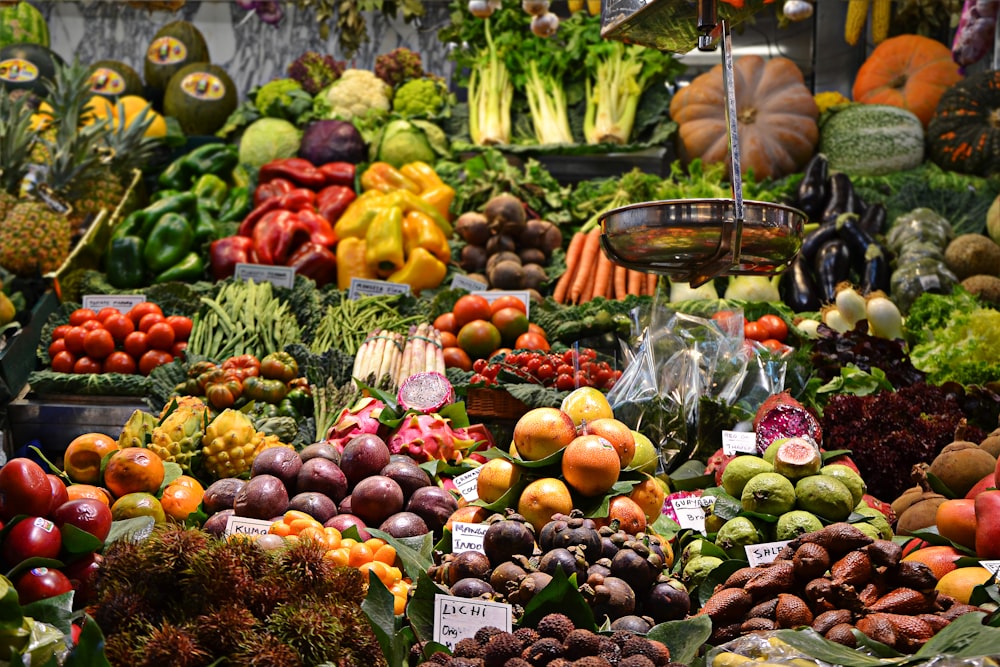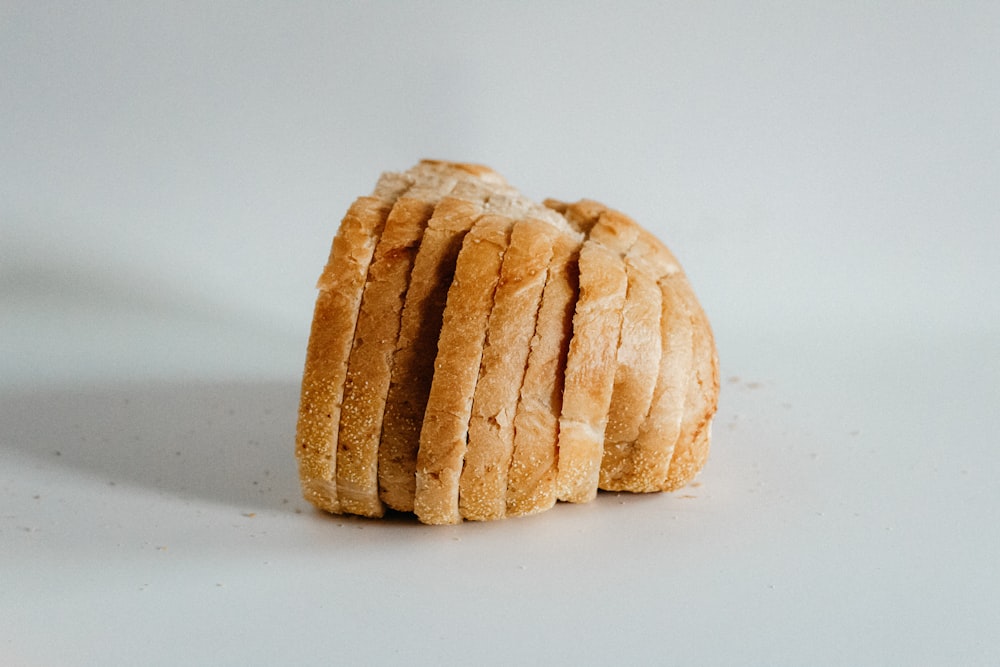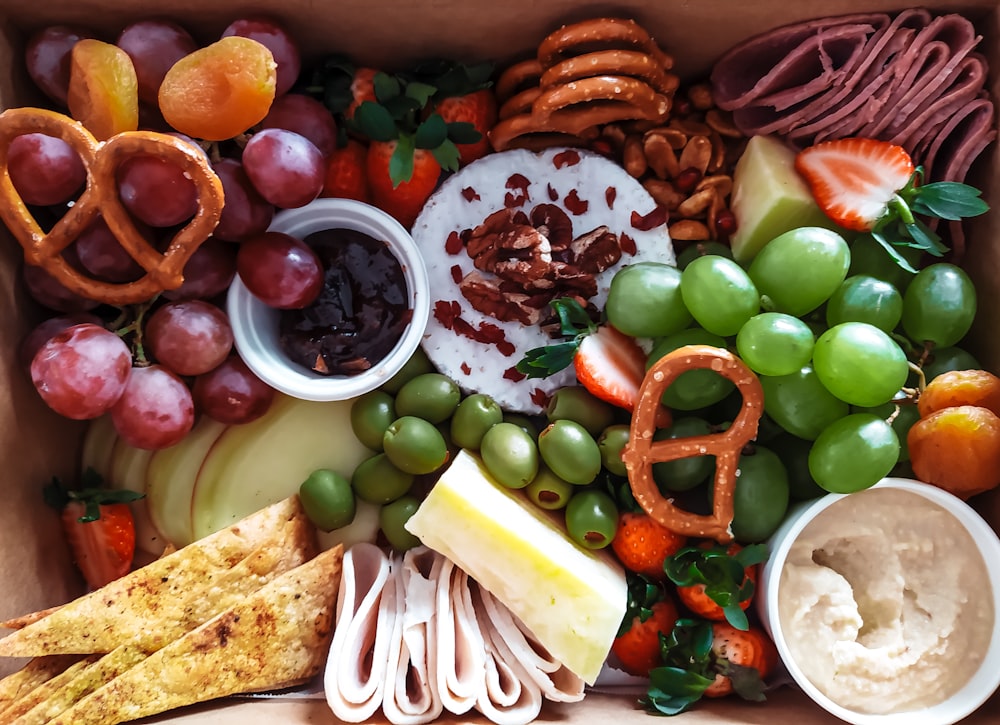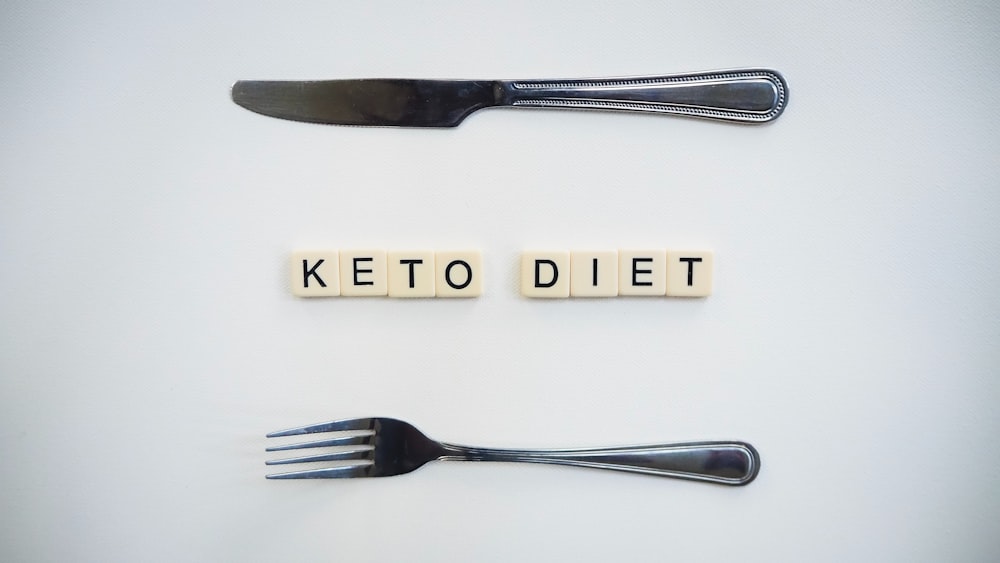
Food is cultural.
The food many of us eat has been the same food we grew up eating. When we go home or spend time with family and friends there is a certain type of food we naturally eat. While we can recognize that there some foods are healthier than others, no one wants to be told the foods they have so often eaten are unhealthy.
Food tastes good.
There is a certain aspect of food that we love because of the effect and feeling we get when eating it. We like what we like and again, we don’t want to be told we are wrong and can’t eat certain foods. Often times this means we go to great lengths to defend why we eat what we eat.
Food is easy to argue about. With social media giving a voice to anyone who claims it, anyone can have an opinion about food and nutrition. Present your arguments, as to why you should never eat meat or why keto is the best diet, with enough confidence, and sometimes even fear, and you can convince many people to change the way they eat. Food is so connected to our self-image and insecurities which makes us easily inclined to believe what others say so long as it can help us look better in the summer. This tends to make us easily persuaded and susceptible to fear.
People have all different reasons and goals for why they eat the way they do. The nutrition goals of a college-aged male bodybuilder versus a busy mom of three are going to vary significantly. Their views of what is healthy and ideal are going to be miles apart. However, both can pursue health and their goals in different ways and both be on the right path.
Another example of this is the vegan community. Many choose this type of diet not necessarily due to the health benefits but because of their compassion for animals and the environment. When discussing nutrition with people who eat plant-based diets, you could be debating two different things without realizing it.
The point is that nutrition is not solely a logical decision.
I would argue for the majority of people what we eat has very little to do with logic. This isn’t necessarily a bad thing, but definitely, something to be aware of as to why these myths start in the first place.
There are also many factors that go into each person’s individual nutrition needs. I can’t possibly cover all of them here, so in this list, there are a good amount of generalities that I believe apply to the majority of people. However, please consult with a dietician or doctor about your individual situation if you have specific questions.
There are tons of myths in the nutrition world, we won't even dive into things like a detox diet, a gluten-free diet, dietary cholesterol, and do foods burn fat. The point is that this list is just brushing the surface.
Okay, that was a lot. But with that out of the way, let’s go all Adam and Jamie and start busting these myths.
1. Low-Fat Equals Healthier
What’s the deal with fat anyways? Why on earth do we have a macronutrient called fat and call our stored excess body mass fat too?
Our obsession with fat started in the mid-20th century as studies were conducted that showed that high-fat diets correlated with high cholesterol. The reasoning followed that if the amount of fats was reduced, heart disease would begin to decline. We have since found out that this is simply not true and the rates of obesity increased.
Why would this happen?
Well, the problem is that in order to make food “low-fat”, “fat-free”, or ‘reduced fat”, you must remove fat from the food. Seems pretty self-explanatory right? But, this means the food does not taste as good. Fats generally give our foods a creaminess and thickness we struggle to replicate without them. So what was happening, and what is still happening, is that we take foods in their more natural state - sour cream, milk, and even peanut butter and they either don’t taste as good or we add additional ingredients to try and make up for the fat we removed.

Let’s look at peanut butter for example. Ideally, in its most natural state, peanut butter should consist of peanuts and maybe some salt. However, the ingredients in a jar of reduced-fat peanut butter include: Peanuts, Corn Syrup Solids, Sugar, Pea Protein, Contains 2% Or Less Of: Salt, Fully Hydrogenated Vegetable Oils (rapeseed And Soybean), Mono And Diglycerides, Molasses, Magnesium Oxide, Niacinamide, Ferric Orthophosphate, Zinc Oxide, Copper Sulfate, Pyridoxine Hydrochloride, Folic Acid. As you can see, we’ve taken a simple food consisting of peanuts and some salt and, in order to remove some of the naturally occurring fats found in a peanut, we’ve had to add corn syrup, sugar, and oil.
Not only is reduced fat generally not healthier than its traditional comparison, but it is also often worse nutritionally. Not to mention the fact that our bodies need fats.
Fats found in foods like olives, fish, nuts, seeds, and avocados are a great place to start. These healthy fats serve many purposes including giving us energy, offering essential vitamins, and producing important hormones.
As we continue, I really like what Dr. Surampudi, an assistant professor of medicine at the University of California, Los Angeles, Center for Human Nutrition, said:
She encourages us to “Prioritize food with simple ingredients.”
2. Fresh Fruit And Vegetables Are Healthier Than Dried, Frozen, or Canned

Your wallet is probably hoping this is a myth that can be busted.
There are many practical reasons why I am hoping dried, frozen, or canned fruits and vegetables are just as healthy as their fresh counterparts. Not only do dried, frozen, or canned fruits and vegetables tend to be cheaper, but they also can be stored for much longer - sometimes for a year or longer, which cannot be said of fresh produce.
Non-fresh fruits and vegetables can also be easier to snack on and tossed in a backpack without fear of bruising or spoiling.
One of the best things frozen produce has going for it is that it is often packed and frozen at peak freshness, whereas “fresh” produce is often picked before it is ready to be eaten. It is then processed and shipped to the store where you buy it. This not only helps with preserving the nutritional benefits of the produce but also often tastes better once dethawed.
Another aspect here to consider is what will you eat most. All four types of produce mentioned are going to generally be great for your health. If you enjoy eating frozen fruit or canned vegetables instead of fresh ones, that is totally fine! It is more important that you prioritize eating fruits and vegetables rather than avoiding produce because it is not “as healthy” because it is fresh or canned.
One thing to consider with dried produce - sometimes there is sugar or oils added in the process. Be sure to look out for these as they aren’t necessary and can easily hide on the back of the nutrition label if you aren’t looking for them.
3. Low Carb Equals Healthier

While fats may have been public nutrition enemy #1 decades ago, carbohydrates may be the new #1. It’s time to give carbohydrates the respect they've been wrongly deprived of.
I think the hate for carbohydrates stems from the low-carb diet.
If you have ever tried this diet or know someone that has they likely had a lot of initial success.
Oftentimes, people will lose ten-plus pounds in the first two weeks, leading them to say - “It was the carbs all along!” However, what really is happening here is the loss of water weight. Carbohydrates are our primary source of energy, and stored carbohydrates hold large amounts of water. So when someone goes on a low-carb diet they are essentially losing large amounts of water which accounts for the large decrease on the scale.
However, for most people, this is not sustainable and weight gain follows shortly. Our bodies are designed to thrive on carbohydrates as an energy source, and while we can get by at times on protein and fats, carbohydrates are best for energy.
Now, when we talk about eating carbohydrates, it is important we distinguish what types of carbohydrates are preferred and which should be eaten less often.
Nutritious foods like fruit, dairy, vegetables, and some grains are a great place to start; on the flipside choosing to get your carbohydrates from sugar and ultra-processed foods is not advised. These foods are part of the reason carbs get such a bad rap. Again, let’s try and “prioritize foods with simple ingredients.”
4. Plant Milk Is Better For You Than Dairy Milk

Talk about a divisive issue. I’m not sure if next year’s election has anything on this issue. Whether you buy almond, soy, oat, or dairy milk, people will agree with you, and others will say you are making a disastrous choice.
Plant milk has grown exponentially in popularity in the last decade.
With the rise of plant-based diets has come the growth of plant-based milk. It is important to note that not all plant milks are created the same and not all dairy milks are created the same.
Before we continue, it is important to note the obvious - if you are lactose-intolerant of course, plant milk is going to be the better option for you. I just want to make the point that both plant milk and dairy milk can be a part of a healthy diet for most people.
Nutritionally, from a macronutrient standpoint, dairy milk has one big thing going for it - protein.
Typically, dairy milk has about 8 grams of protein per cup, whereas plant milk has between 1 and 3 grams. Dairy milk also doesn’t have any added sugars, whereas plant milk often adds sugars. If we look at the ingredients list, plant milks will often have much longer lists including oils, gums, and added sugars. However, plant milk can be made at home or purchased from brands that produce it with very minimal ingredients.
I think the biggest thing here is not to demonize the other.
Both can be a part of a well-rounded diet and the most important thing is to note the ingredients and prioritize that simple option.
5. Too Much Protein Is Bad For Your Kidneys

Sure, there is a point where too much protein is not great for your kidneys, but chances are you are nowhere close.
Where the fear comes from is how protein is digested.
The liver is where protein is metabolized, and during this process, a by-product - ammonia - is converted to urea. Urea is then filtered and removed from the body by way of the kidneys. The fear here is that if you eat too much protein it will overload this process and place too much stress on the kidneys. However, this is not true.
Protein is an essential macronutrient in our diet.
It helps us stay full, rebuild and repair muscles, and improve body composition. If you ever do the math on the back of a food label, it says that 50 grams of protein is good. Obviously, the food label doesn’t know how much you weigh and your caloric needs, but a better number may be .8g/kg which is the recommended dietary allowance.
However, even this has been shown to be too low, especially for active individuals. According to the ISSN (International Society of Sports Nutrition), it is recommended active individuals eat 1.2-2.4g/kg daily. Not only is this safe, it is optimal. Obviously, if you have a history of kidney issues please talk to your doctor, but for the vast majority of people, their protein intake can and should be increased.
6. Supplements Are Critical

We could write an entire book about this. For so many people, they have bought into the marketing of supplement companies - whether it be fat-burning pills, protein powder, or fish oil.
Now, I already know what you are thinking - protein powder?!
I know, I love protein powder and think it is incredibly useful as a supplement. My problem becomes that protein powder has been sold to the gym community as a necessity. It has been marketed as if you don’t take this you won’t gain as much muscle and recover as well from your workouts. The reality is that protein in protein shakes is great, protein in steak is great, and protein in Greek yogurt is great. To say, that protein powder, or any supplement for that matter, is necessary for good health and nutrition or to be successful in the gym is often a marketing stretch.
Supplements are just that - supplemental.
You cannot take enough greens powders, protein powders, and meal replacement shakes to try and fix your diet. The best diets consist of real foods with minimal ingredients.
With all that being said, supplements can make a great addition to an already healthy diet.
Protein shakes can make getting enough protein easier and creatine can help with everything from building muscle to brain function. Be sure to only buy supplements that are certified for the ingredients listed - I really like the NSF certification. Also, if a supplement sounds too good to be true it probably is. Taking a pill that tells you it will help you burn belly fat certainly falls into this category. Another myth along these lines - pills and foods burn fat.
7. Eating Healthy Is Expensive

It can be easy to think this way when you go to the store and see a carton of strawberries for $6. After all, that’s the price of a frozen pizza! However, it is not as difficult or expensive to eat healthy as you may think.
Foods like chicken breast, eggs, greek yogurt, frozen fruits and veggies, potatoes, and rice can make healthy eating much cheaper than you may realize.
Plus, I’m sure you have noticed that fast food isn’t so cheap anymore either - dollar menus are becoming. a thing of the past. Luckily with a little bit of prep, you can not only make healthier foods, but I would argue you can even save money with some minimal effort.
Another point I like to make here is about the word “expensive.”
Eating healthy is expensive. Okay, even if it is true, is it not worth it? What we eat has an immense impact on our health and quality of life. When we consistently choose the easy route when it comes to food and nutrition by prioritizing convenience, taste, and price - cough, cough, ultra-processed foods - we are saying those things are more important than our long-term health in the long run.
Now, please hear me, I’m not saying that you must eat grilled chicken and spinach every meal for the rest of your life. I'm also not saying that there aren't real situations where eating healthy is not significantly harder due to financial hardship. I just think it’s important to consider the cost of not prioritizing your nutrition if you are able.
8. Snacking Is Bad

Meal and food timing has gotten a lot of attention lately.
Snacking is just snacking. Snacking is neither good nor bad.
Let’s break it down. First, what are you snacking on? Are you eating beef jerky and almonds or are you eating Twinkies and Skittles? Snacking on the first is going to be significantly better for you and a part of a well-balanced diet.
Also, are you snacking because you are hungry or because you are bored? One of the biggest reasons we snack is because we get bored and want the entertainment and enjoyment of a snack. Again, this can be totally fine if you are eating nutrient-dense foods and not a lot of them, but if your bored snacking consists of an entire family-size bag of Cheetos, that’s something to be concerned about.
Sometimes snackers are people who are busy or prefer to eat a lot of small snacks throughout the day rather than two or three giant meals. At the end of the day, this doesn’t really matter, it is more of a preference thing. Assuming you are eating enough calories to support your activity level and enjoy the way you eat, go for it.
9. I Can Out-train A Bad Diet

When people say this, what they are effectively saying is that by working out enough, they can ignore what they eat and still look fit and in shape. This idea often comes from young bodybuilders and gym-goers.
This is a myth but with a caveat or two.
First, what is the goal?
For a 21-year-old serious gym-goer, he or she can likely lift and train very hard and eat just about anything and not worry about gaining a ton of fat. However, this is more so due to the metabolic processes going on in this individual’s body than a general sweeping principle for all people - especially those who are older. This even depends on the 21-year-old too though.
For instance, some people genetically have a very difficult time with weight gain, but if someone gains weight easily, they would likely gain unwanted body fat. Also, if the goal is health, this is not the way. There is a big difference between being healthy and "looking healthy".
So, to an extent, you can make progress in the gym and gain muscle while eating poorly, given the optimal circumstances mentioned above.
But, to say that you are out-training or out-working all the unhealthy foods eaten and excess calories consumed is a myth.
And it is certainly not wise considering the long-term consequences.
10. The Only Way To Lose Weight Is Through A “Diet”

Whether we are talking about keto, Atkins, carnivore, or even a detox diet - all of them will claim to be your solution. The problem is that most of them work by elimination. Elimination diets can be effective in the short run because you have less food to choose from. If you can only eat meat in a strict carnivore diet, you’ve essentially eliminated 80% of the options you would have chosen.
This makes it much easier to not overeat, as well as much easier to avoid ultra-processed foods. Plus, if you are purposefully putting yourself under these stringent conditions in order to lose weight, you are going to be more conscious about your food choices.
These fad diets are often beneficial in the short run as far as seeing immediate results but are unsustainable.
A diet only works if you stick to it, this is why nutritionally speaking, the best plan is the one you can commit to for the foreseeable future. This means that it makes much more sense to take it slowly, make choices that are sustainable, and be okay with missing the mark of perfection. It is much better to make healthy, responsible food choices 80% of the time for a lifetime than it is to be perfect for two weeks and spiral out. One of the best ways to do this is to have a plan - using a meal planner tool can set you up for success. This will help ensure you are making nutritious, delicious, and easy meals that you can stick with. Remember consistency is key!
This way of thinking will result in a more sustainable, healthy weight without the constant fluctuation of weight gain and then trying to lose weight.
Sources
Egan, Sophie. “10 Nutrition Myths Experts Wish Would Die.” The New York Times, 19 January 2023, https://www.nytimes.com/2023/01/19/well/eat/nutrition-myths.html.
Kaminski, Jacqueline. “10 Nutrition Myths You Would Do Best to Ignore.” NASM Blog, https://blog.nasm.org/nutrition-myths-to-ignore.
“Reduced Fat Creamy Peanut Butter.” Jif, https://www.jif.com/peanut-butter/creamy/reduced-fat.
Taub-Dix, Bonnie. “Fresh vs. Frozen vs. Canned: Are Frozen Vegetables and Fruit Better Than Fresh? | U.S. News.” US News Health, 9 March 2023, https://health.usnews.com/health-news/blogs/eat-run/articles/fresh-frozen-or-canned-what-produce-is-best.
Wergin, Allyn. “10 common nutrition myths debunked.” Mayo Clinic Health System, 25 February 2022, https://www.mayoclinichealthsystem.org/hometown-health/speaking-of-health/10-nutrition-myths-debunked.

